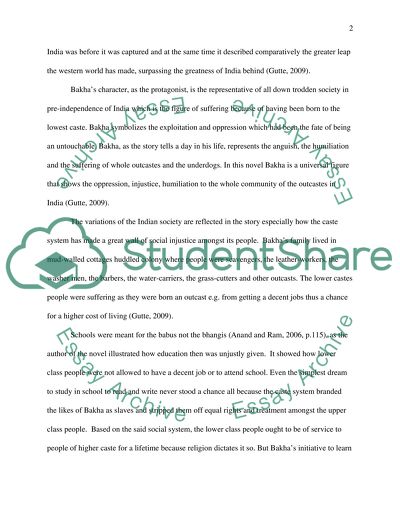Cite this document
(“Untouchable by Mulk Raj Anand Essay Example | Topics and Well Written Essays - 2250 words”, n.d.)
Retrieved from https://studentshare.org/literature/1441401-how-are-british-and-or-india-represented-in-your
Retrieved from https://studentshare.org/literature/1441401-how-are-british-and-or-india-represented-in-your
(Untouchable by Mulk Raj Anand Essay Example | Topics and Well Written Essays - 2250 Words)
https://studentshare.org/literature/1441401-how-are-british-and-or-india-represented-in-your.
https://studentshare.org/literature/1441401-how-are-british-and-or-india-represented-in-your.
“Untouchable by Mulk Raj Anand Essay Example | Topics and Well Written Essays - 2250 Words”, n.d. https://studentshare.org/literature/1441401-how-are-british-and-or-india-represented-in-your.


